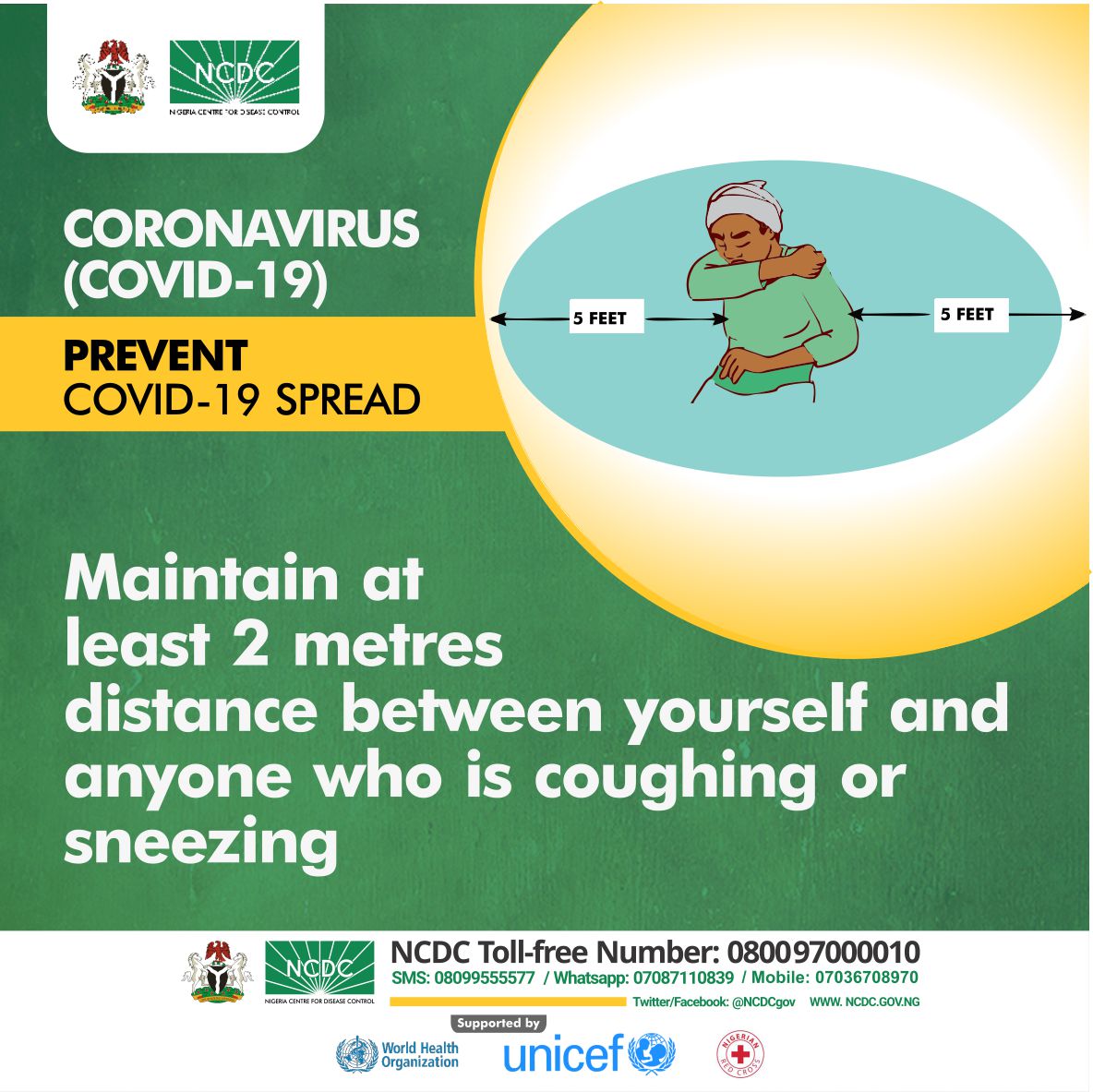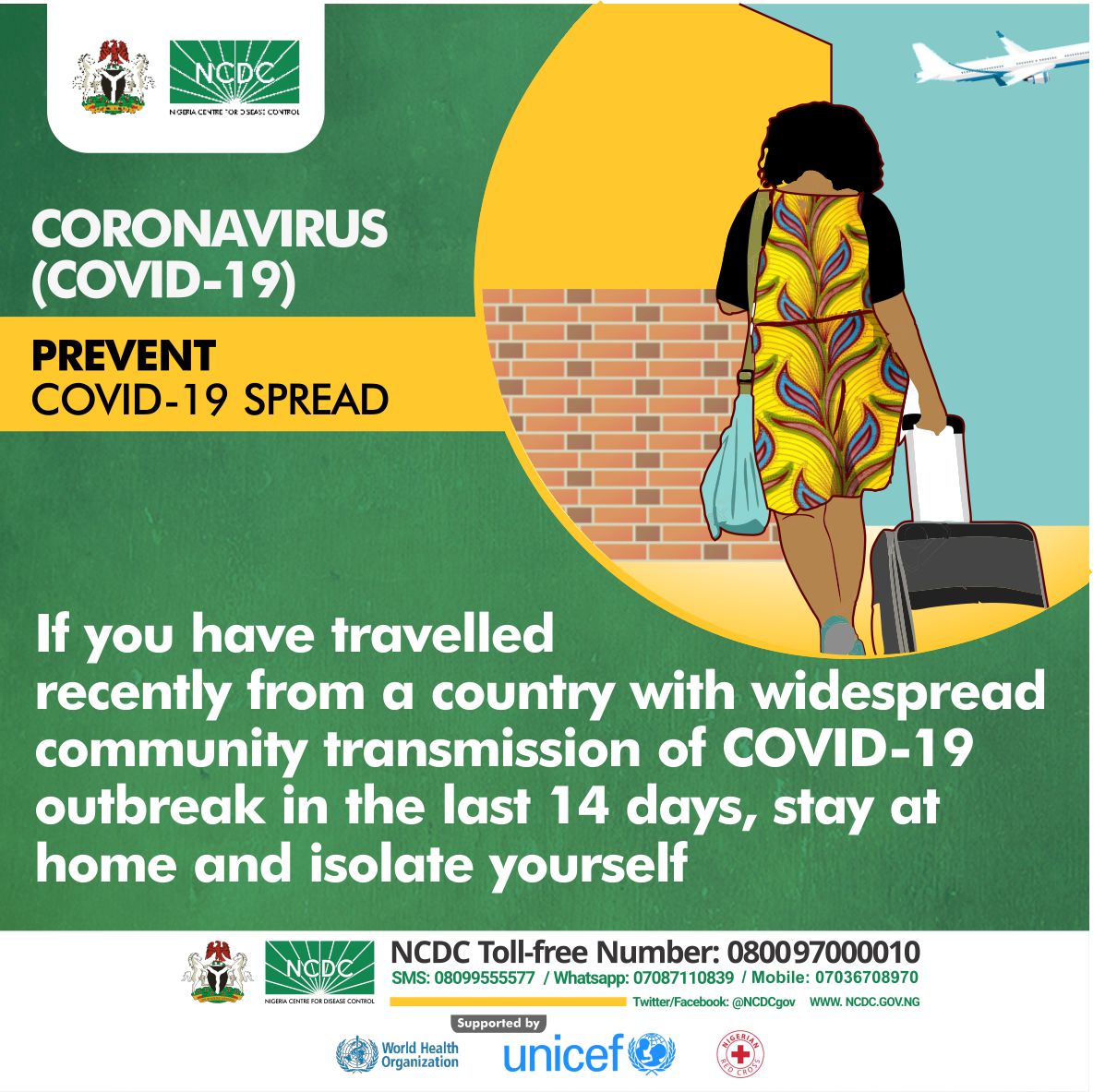How to prevent coronavirus in Nigeria: A deadly new coronavirus that emerged in China in late December has spread to more than 160 countries on six continents, with the World Health Organization (WHO) declaring the pathogen a global pandemic.
On March 19, the death toll from the virus reached 8,970 and the number of reported cases surged to more than 200,000 globally. Domestically, Nigeria has confirmed 12 cases of Coronavirus which led to the government to placing travel bans on countries with confirmed cases of over 1000; shutting down social gatherings on state levels and 2 States have closed all schools with immediate effect.
All these happenings could make one get frantic and overreact but according to studies from countries that have been hit hard, panicking at this time would only make matters worse and at the same time, one must take cognizance of the virus . As fear spread, scientists and researchers around the world ramped up efforts to understand the new virus and how it affects the human body. Here is what we know about COVID-19 and what happens if you are infected.
What is Covid-19?
It is caused by a member of the coronavirus family that has never been encountered before. Like other coronaviruses, it has come from animals. The World Health Organisation has declared it a pandemic.
What are the symptoms this coronavirus causes?
The virus can cause pneumonia-like symptoms. Those who have fallen ill are reported to suffer coughs, fever and breathing difficulties. As this is viral pneumonia, antibiotics are of no use. The antiviral drugs we have against flu will not work, and there is currently no vaccine. Recovery depends on the strength of the immune system.
In Nigeria, the Centre for Disease Control has identified the symptoms as experiencing either:
- a high temperature – you feel hot to touch on your chest or back
- a new continuous cough – this means you’ve started coughing repeatedly
NCDC also advises that anyone with symptoms should self-isolate for at least 14days days. If you live with other people, they should stay at home for at least 14 days, to avoid spreading the infection outside the home. This applies to everyone, regardless of whether they have traveled abroad. You should look at the NCDC official website for precautionary measures in protecting yourself against the deadly virus. Link below:
http://covid19.ncdc.gov.ng/
Nigeria has imposed a travel ban on 13 countries with more than 1000 confirmed cases of the virus. (Check out the list of countries). Many countries have imposed travel bans and lockdown conditions in order to try and halt the spread of the virus. You should check with your local authorities for the latest advice on seeking medical assistance.
Should I go to the doctor if I have a temperature or a cough?
No. The NCDC has advised that if you get any symptoms of the COVID-19 or you have recently traveled from a country with widespread community transmission, you should stay at home for at least 14 days, to avoid spreading the infection outside the home. This applies to everyone, regardless of whether they have traveled abroad.
Many countries have imposed travel bans and lockdown conditions in order to try and halt the spread of the virus. You should check with the official social media channels of the NCDC for the latest advice on seeking medical assistance
The #COVID19Nigeria situation report has been published for 18th March, 2020.
Our daily situation reports for #COVID19 provide a summary of the epidemiological situation and response activities in the country.
Read via: https://t.co/eZuwDcWILd… pic.twitter.com/usLbHj9CeZ
— NCDC (@NCDCgov) March 19, 2020
How many people have been affected?
China’s national health commission confirmed human-to-human transmission in January. As of 19 March, more than 219,000 people have been infected in more than 150 countries, according to the Johns Hopkins University Center for Systems Science and Engineering.
There have been over 8,900 deaths globally. Just over 3,200 of those deaths have occurred in mainland China. Many of those who have died had underlying health conditions, which the coronavirus complicated.
More than 84,000 people are recorded as having recovered from the coronavirus.
Should I wear a mask to protect myself from the #COVID19?
Only wear a mask if you are ill with #COVID19 symptoms (especially coughing) or looking after someone who may have #COVIDー19. #CoronaVirusUpdate #CoronaVirusNigeria pic.twitter.com/FBgrYXaPmb
— WHO Nigeria (@WHONigeria) March 19, 2020
Why is this worse than normal influenza, and how worried are the experts?
We don’t yet know how dangerous the new coronavirus is, and we won’t know until more data comes in, but estimates of the mortality rate have ranged from well below 1% in the young to over 3% among those who are elderly or have underlying health conditions. Seasonal flu typically has a mortality rate below 1% and is thought to cause about 400,000 deaths each year globally. Sars had a death rate of more than 10%.
Another key unknown is how contagious the coronavirus is. A crucial difference is that unlike flu, there is no vaccine for the new coronavirus, which means it is more difficult for vulnerable members of the population – elderly people or those with existing respiratory or immune problems – to protect themselves. Hand-washing and avoiding other people if you feel unwell are important.
Have there been other coronaviruses?
Severe acute respiratory syndrome (Sars) and Middle Eastern respiratory syndrome (Mers) are both caused by coronaviruses that came from animals. In 2002, Sars spread virtually unchecked to 37 countries, causing global panic, infecting more than 8,000 people and killing more than 750. Mers appears to be less easily passed from human to human, but has greater lethality, killing 35% of about 2,500 people who have been infected.
References:
Nigerian Center for Disease Control, NHS UK, Johns Hopkins University Center for Systems Science and Engineering, The guardian
HOT NOW








































Discussion about this post